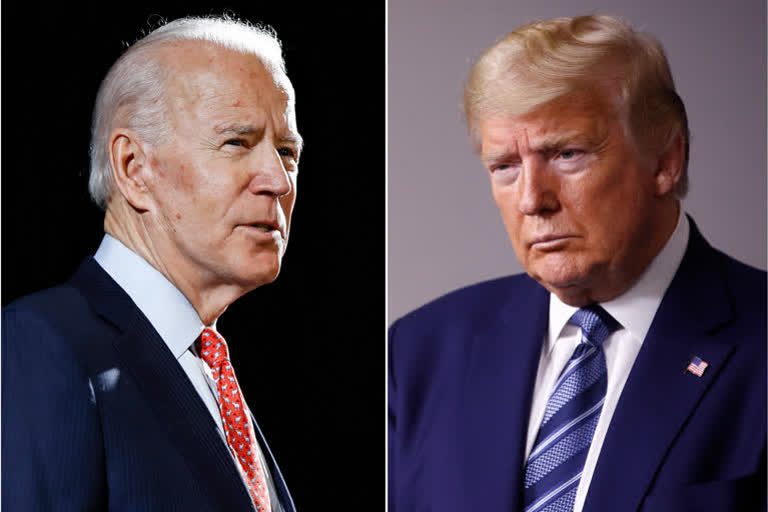Hyderabad: As Joe Biden is sworn in as the President of the United States, he plans to take executive action to rescind some of the controversial decisions taken under Donald Trump.
On January 20, following his inauguration, the President will most likely roll back his predecessor's restriction on immigration to the US from some Muslim-majority countries, rejoin the Paris climate change accord and also put in more efforts into the prevention of coronavirus.
Just weeks into his office, Trump had in 2017 issued an executive order banning travellers from seven majority-Muslim nations from entering the US.
That order was reworked many times by the Trump administration following which the Supreme Court upheld its third version in 2018.
The countries that came under the first order were Iran, Libya, Somalia, Syria and Yemen.
The ban was later extended to Venezuela and North Korea. Countries like Nigeria, Sudan and Myanmar were among the other countries added to the list over time.
In July last year, the Democrat had pledged that if he is elected president, he will end President Donald Trump’s so-called Muslim travel ban on his first day in office.
He had also said that he would work with Congress to pass hate crimes legislation like the Jabara-Heyer No Hate Act and the End Racial and Religious Profiling Act.
Who is affected?
- Millions of people, particularly refugees, seeking to find a temporary home in the US.
- The ban has also impacted the number of visas issued to nationals of the Muslim majority countries that fall under the ban. It has also affected nationals from non-banned countries.
- American Muslims and other minorities living in the US have had to suffer because of the ban as they were cut-off from families who were declined a visa by the country.
- The Muslim ban has also affected people from four countries that have—or have had—Temporary Protected Status (TPS) designations: Somalia, Syria, Yemen, and Sudan. TPS offers protection from deportation to people from countries afflicted by war, natural disaster, or other humanitarian crises.
- Students and professionals from other fields.
Impact of the travel ban
Roughly, about citizens of 13 countries are impacted: Iran, Libya, Somalia, Syria, Yemen, Venezuela, North Korea, Nigeria, Myanmar, Eritrea, Kyrgyzstan, Sudan and Tanzania.
The impact of travel restrictions has been far-reaching. As per a Time magazine report, between October 1, 2015, and September 30, 2019, there was a decrease of 79% in visas issued to Iranians, 74% for Somalis and 66% for Yemenis, according to The Bridge Initiative, a research project based in Georgetown University that focuses on Islamophobia.
In January 2019, the libertarian Cato Institute reported that the new restrictions had already prevented more than 15,000 spouses and adopted children of US citizens from joining their spouses or parents in the US.
In Michigan, a Yemeni-American father and US citizen Mahmood Salem committed suicide after his wife and two of his five children in Djibouti were denied visas under Trump’s travel ban to join him in the US, NBC had reported.
Repercussions worse?
- According to observers, the ban did not only affect the people from entering the US, but there has been a rise in attacks against Muslims and people of colour. The attacks have been in the form of intimidation on streets and racism since the ban was implemented.
- A law was also passed last year that allowed the officials to block refugee resettlement, which, many said, could promote racial segregation and restricting rights to freedom of movement based on one’s immigration status. The policy was, however, temporarily halted by the court.
Is rollback easy?
Even though the ban is likely to be withdrawn, many activists, social organizations, Muslims and other immigrants feel that the threat of discrimination will not go away so easily.
For people who have experienced the ramifications of the ban first-hand, the rollback will be a step to return to the normal.
Also Read: Know the new US President Joe Biden



